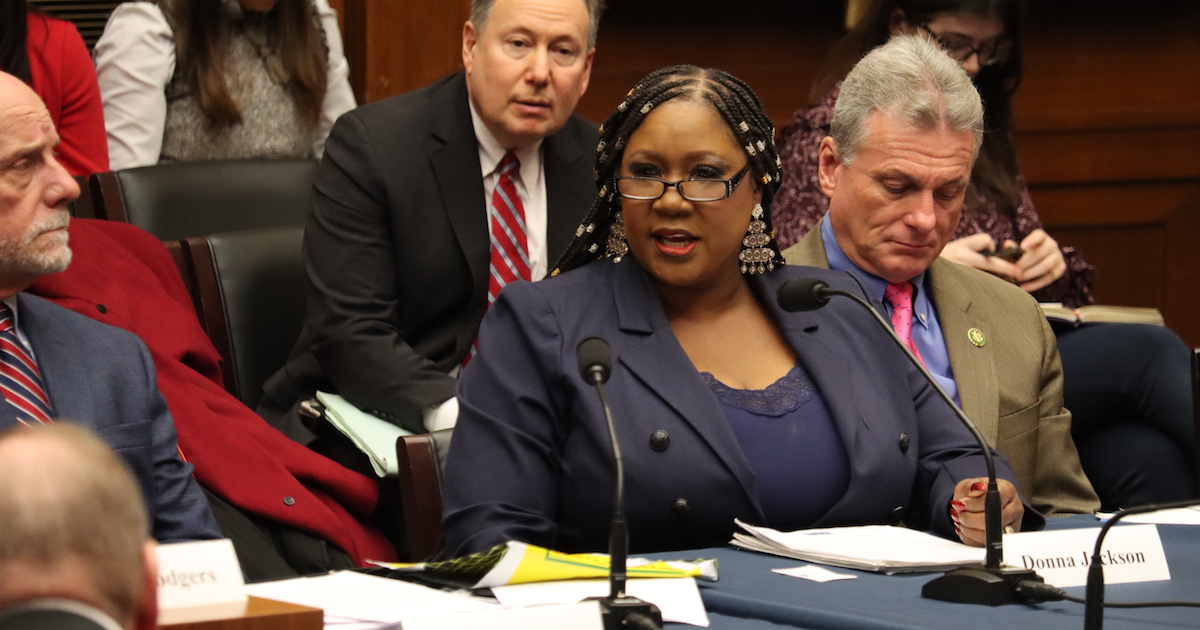
14 Jun 2023 Project 21 to Testify Before Senate Committee Over Impact of Plastics Industry on Black Communities
Black Families Benefit from Industry Jobs, Not Poverty
Washington, D.C. — Donna Jackson, director of membership development at the National Center for Public Policy Research’s Project 21 black leadership network, will testify today before the U.S. Senate Committee on Environment and Public Works in a public hearing titled “Impacts of Plastic Production and Disposal on Environmental Justice Communities.”
Black communities suffer today from a lack of economic opportunities. Offshoring of industries, like plastics manufacturing, has been a significant driver in the escalating poverty cycle that irreparably harms many black families.
“It is an overwhelmingly positive thing for struggling communities to have industrial facilities nearby, including plastics manufacturing,” states Jackson in her prepared remarks. “The high wage blue collar jobs that these employers provide are in many cases the best ones available for those without college degrees. And if you look at the history of the creation of a black middle class over the last century, it is these gateway jobs that lifted up millions of families and broke the cycle of poverty.”
“And it is not just the direct jobs. Every big manufacturing facility supports many small businesses in the community, and quite a few of these vendors are minority-owned,” continues Jackson. “They also contribute to the tax base that pays for things like schools and police protection. But none of that can happen without the local industrial base, whether it’s a plastics plant or a refinery or an automaker.”
“We hear a lot about the environmental dangers of living near or working in these facilities. I think a sense of perspective is in order,” says Jackson. “American manufacturers, including plastics plants, are subjected to the most rigorous environmental standards in the world, and industrial emissions have declined substantially over the last several decades. For every study claiming a cancer cluster or a statistical association with some other disease, there are others that find that low-income people living near these facilities are no worse off than comparably poor people in general. And I think it is worth noting that the environmental activists who focus on weak correlations between industrial emissions and health impacts tend to ignore the undeniable and well documented improvements that come with the transition from poverty to well-paying employment. Beyond reduced illness and disease, good jobs lead to stronger families and substantially lower rates of domestic and sexual violence and other traumas.”
“The enemy is not trace emissions in the air and water from industrial activity. The enemy is poverty,” summarizes Jackson.
Donna Jackson’s statement on behalf of Project 21 can be viewed here.
The event will be livestreamed here starting at 10:00 am ET.
About
Project 21, a leading voice of black conservatives for over 25 years, is sponsored by the National Center for Public Policy Research. Its members have been quoted, interviewed or published over 50,000 times since the program was created in 1992. Contributions to the National Center are tax-deductible and greatly appreciated and may be earmarked exclusively for the use of Project 21.
Founded in 1982, the National Center for Public Policy Research is a non-partisan, free-market, independent conservative think-tank. Ninety-four percent of its support comes from some 60,000 individuals, less than four percent from foundations and less than two percent from corporations. Sign up for email updates here. Follow Project 21 on Twitter at @Project21News for general announcements. To be alerted to upcoming media appearances by Project 21 members, follow our media appearances Twitter account at @NCPPRMedia.




